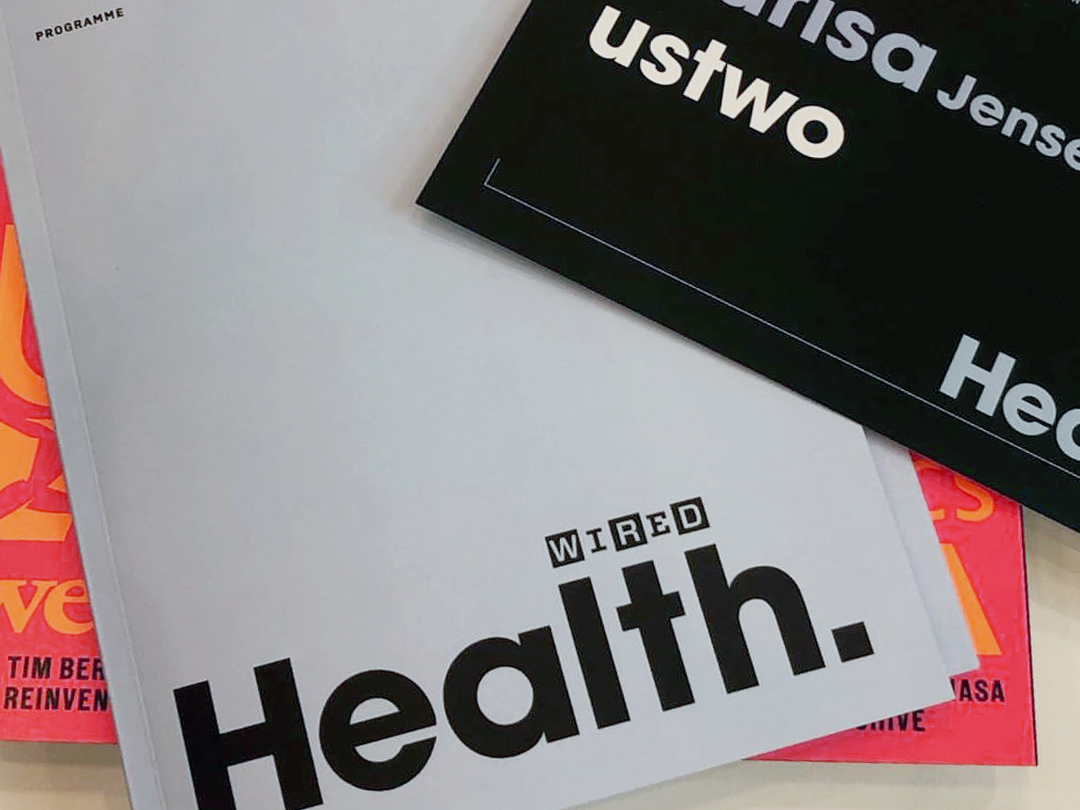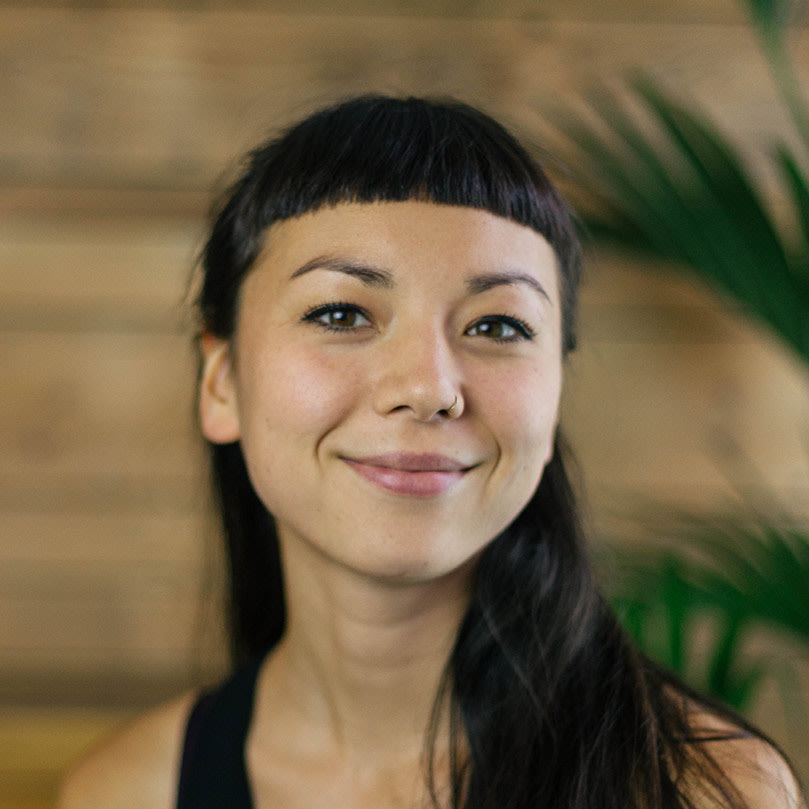Last month, a few of us at ustwo attended WIRED’s annual Health event, a day showcasing and celebrating all the latest in the health tech sphere. Here are some of the key things we heard.

Our biggest weakness is time.
Prevention and early diagnosis are more effective than treatment. Time and time again, the majority of people we heard from were working to push back the point of diagnosis. Parkinson’s disease currently has something like a 20 year gap between potential onset and actual diagnosis, with little understanding or support for the warning signs during the early stages. Having worked with a client that deals with patients across 5 stages of Chronic Kidney Disease, we know that intervention in the early stages with lifestyle changes and light medication is far more effective for the longevity of the patient than treatment in the later stages with tri-weekly dialysis. We know the same principle applies to cancer. Eyecare start up Okko Health and a Moorfields Hospital/Google Deepmind partnership both told us that 70% of vision impairment is preventable, if only people had access to the right experts or right equipment in a timely manner. But the infrastructure we have in place at the moment doesn’t support this model, when it doesn’t necessarily prioritise early warning signs and symptoms as much as it could. When the founder of the AI-powered period care start up Freda started missing her period, she pestered her GP for a gynaecology scan for months. When she was finally sent to the hospital, she discovered she had bladder cancer. The popular rise in self-test kits and vigilant self-tracking tools seems to reflect this urge to take control of one’s own health early on.
The trouble with data.
Easily replicated, one size fits all healthcare - along with tech - will be a thing of the past, with our devices knowing more about our bodies and behaviours than we do ourselves. We know that personalised healthcare is more effective, and patients want to feel heard and looked after as individuals. In a panel with Dan Boot from RB Health and Bertalan Mesko from The Medical Futurist Institute, we heard that in order to have good personalisation you need data, not just of the individual but of the population. The usual anxieties around privacy are still rife, particularly for healthcare - but many of the apps we use are already sharing data far beyond most people’s awareness. Medical queries are one of the highest searched categories online; every time you Google a condition, that is a form of data shared.
All of this data is currently splintered - there is no systemised aggregation of all the data chunks currently living in numerous different digital pockets, from the Fitbit we wear every day to the fertility tracker we trialled for a week. Pamela Spence from EY Global Health Sciences and Wellness told us that we need better protocols and architecture for data sharing in order to bring all the scattered bits we have into something that can be used more effectively. And we need the population to voluntarily donate their data for the greater good of healthcare, whether it’s for a condition relevant to them or not. But that trust needs to come from somewhere, whether it’s providing greater control over gradients of shareability, more transparency around how the data is being used, or better support with understanding what the data actually means.
The era of empathetic technology.
In an age of ubiquitous tracking, are we being surveilled or empowered? Data collection has moved beyond deliberate inputs, and technology can now pick up on nuances. Dolby Laboratories told us that changes in the use of pronouns is an early indicator of Alzheimer’s and dementia. Changes in vocal ranges can indicate a host of diseases like multiple sclerosis, diabetes, and bipolar disorder. Changes in facial expressions are one of the earliest signs of Parkinson’s, starting as early as 20 years before currently recognisable onset, which Faceprint's Erin Smith is working to uncover.
On a less critical level, your pupils can reveal how hard your brain is working, thermal imaging can detect stress, and even the chemicals exuded in our breath reveal the emotions we feel. Poppy Crum from Dolby showed us how the carbon dioxide levels in a room full of people watching the exhilarating Free Solo can be matched precisely to the emotional peaks and troughs of the documentary. Our bodily reactions become synchronised during shared emotional experiences like concerts, the cinema or live sports. These factors are completely involuntary, we cannot control them. Constant monitoring means the "end of poker face" - there is no hiding or pretending when the technology can’t be fooled. But it also can mean greater autonomy and freedom if it liberates us to better understand our bodies and our minds. It will transform the relationships we have with each other, and the spaces we inhabit, alone and together.
The tech isn’t the interesting part.
It’s safe to assume that technology will continue to evolve, and the things we wish we had now will arrive in the near future. In that respect it’s not the technology itself but the infrastructure, processes, and culture around the technology that is meatier, trickier, and harder to make effective. AI has huge potential - it’s doing really well with faster identification and disease tracking/management, and Moorfields Eye Hospital believe Ophthalmology will be the first branch of healthcare to be completely transformed by AI. But it’s the health care professionals that work with the AI that really surface its value; those that interpret the raw data coming out of it and make it consumer friendly, and the ‘unsung heroes’ that help make the existing historical data ready for machine learning. Technology races ahead, but healthcare is notoriously slow, and services and expertise risk becoming obsolete. Yet time with patients is often a primary reason clinicians go into the field, and in reverse, patients consistently ask for more time, support and real life conversation. There are still gaps in the critical relationship between healthcare professionals and technology - in our work we have seen that clinicians will not trust information without knowing where it came from; and data without context can be dangerous. Deepmind is attempting to solve for the ‘black box problem’ with a model that reveals where AI is confident, where it’s uncertain, and why.
Collaboration really is the cure.
We’ve said it before and we heard it again: a clear theme throughout the day was in the power of collaboration between disciplines. If true innovation stems from connecting disparate dots, we need the cross pollination of expertise. Where healthcare moves slowly, it needs the right partners to quickly render complex medical advancements into value for the consumer. Where technology innovates at lightning speed, it needs the regulation and backing of a trustworthy system that provides a safe and responsible service. At ustwo we know from working with healthcare clients that value for the business and value for the doctor or patient can sometimes mean different things, and we need to prioritise different types of impact in different contexts. Those decisions require a careful mix of deep knowledge about healthcare as an industry and business, user-driven behavioural insights, and design and tech sensibility. Read more about our past work in this sector here.
